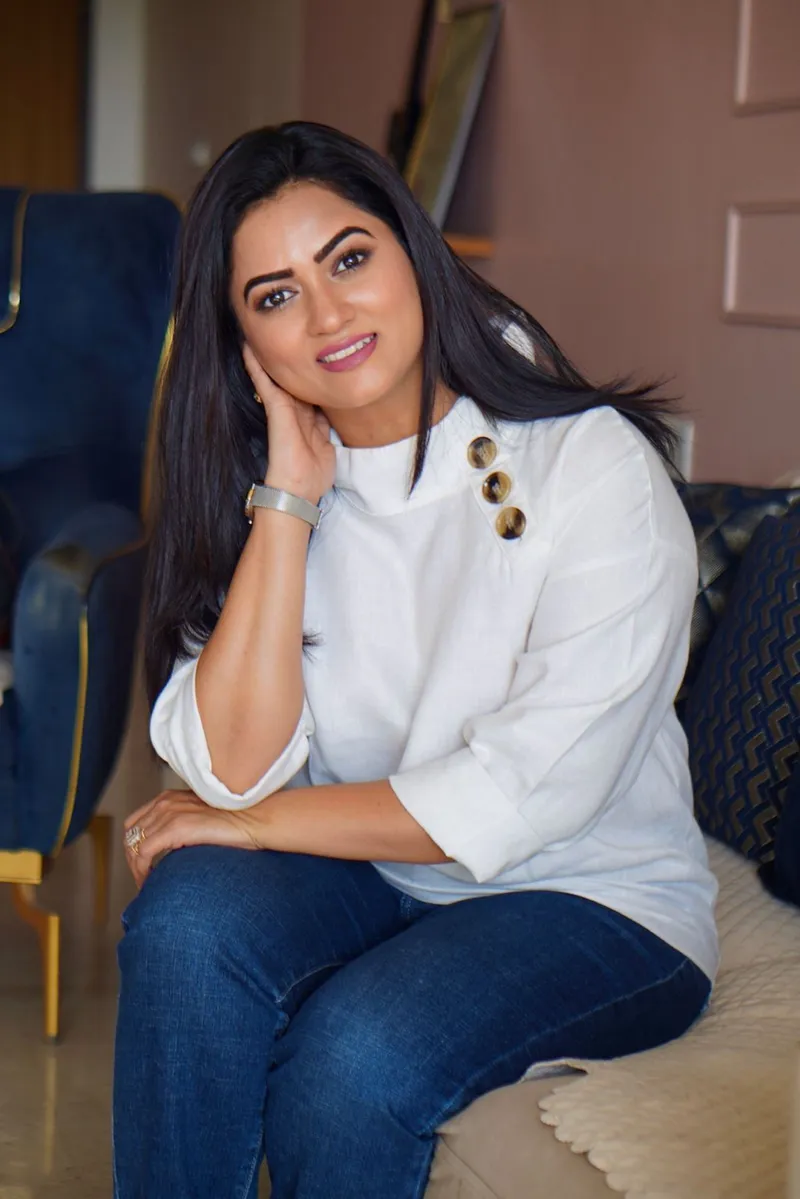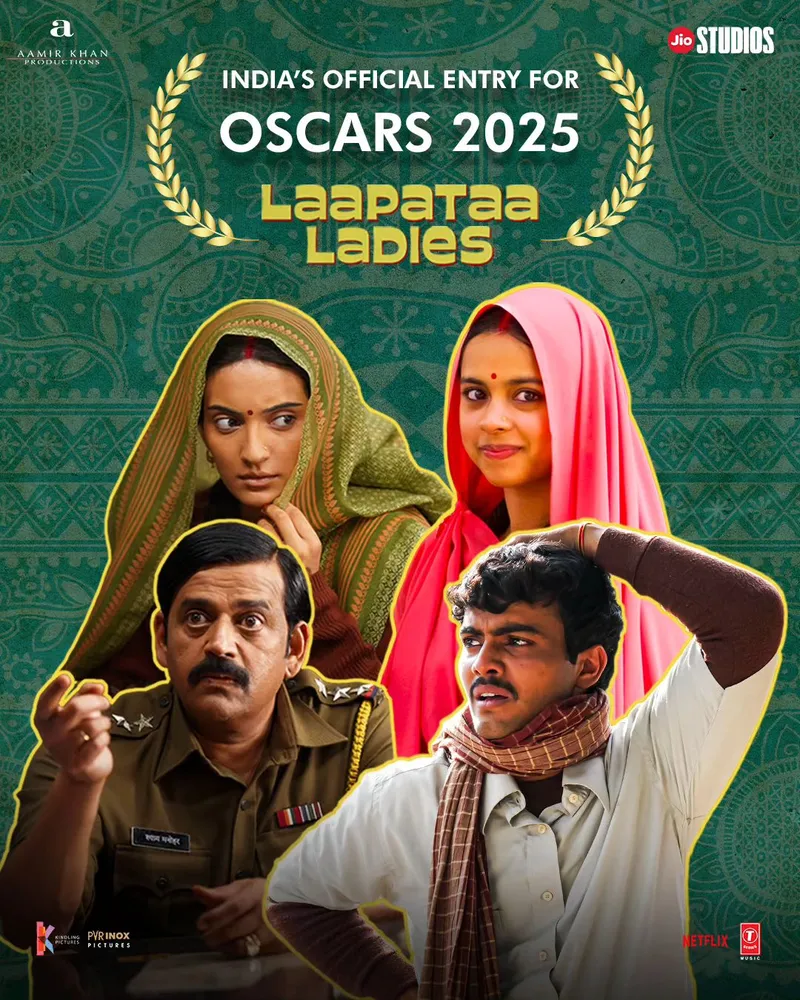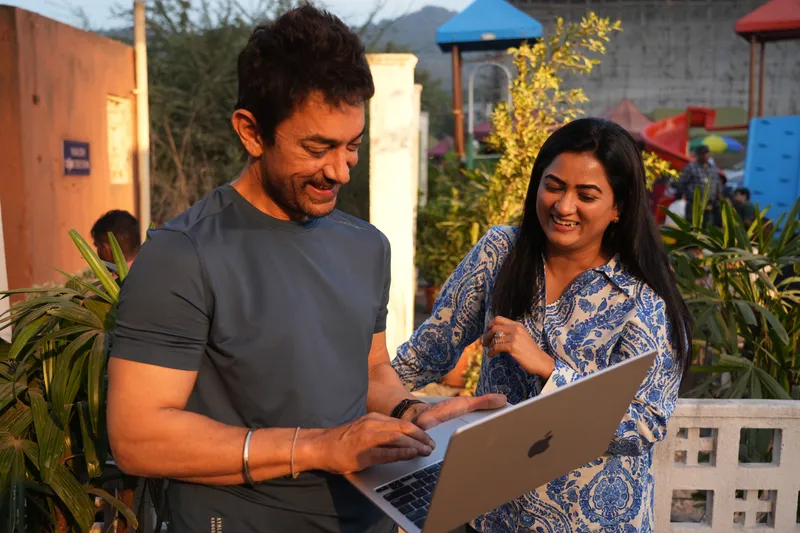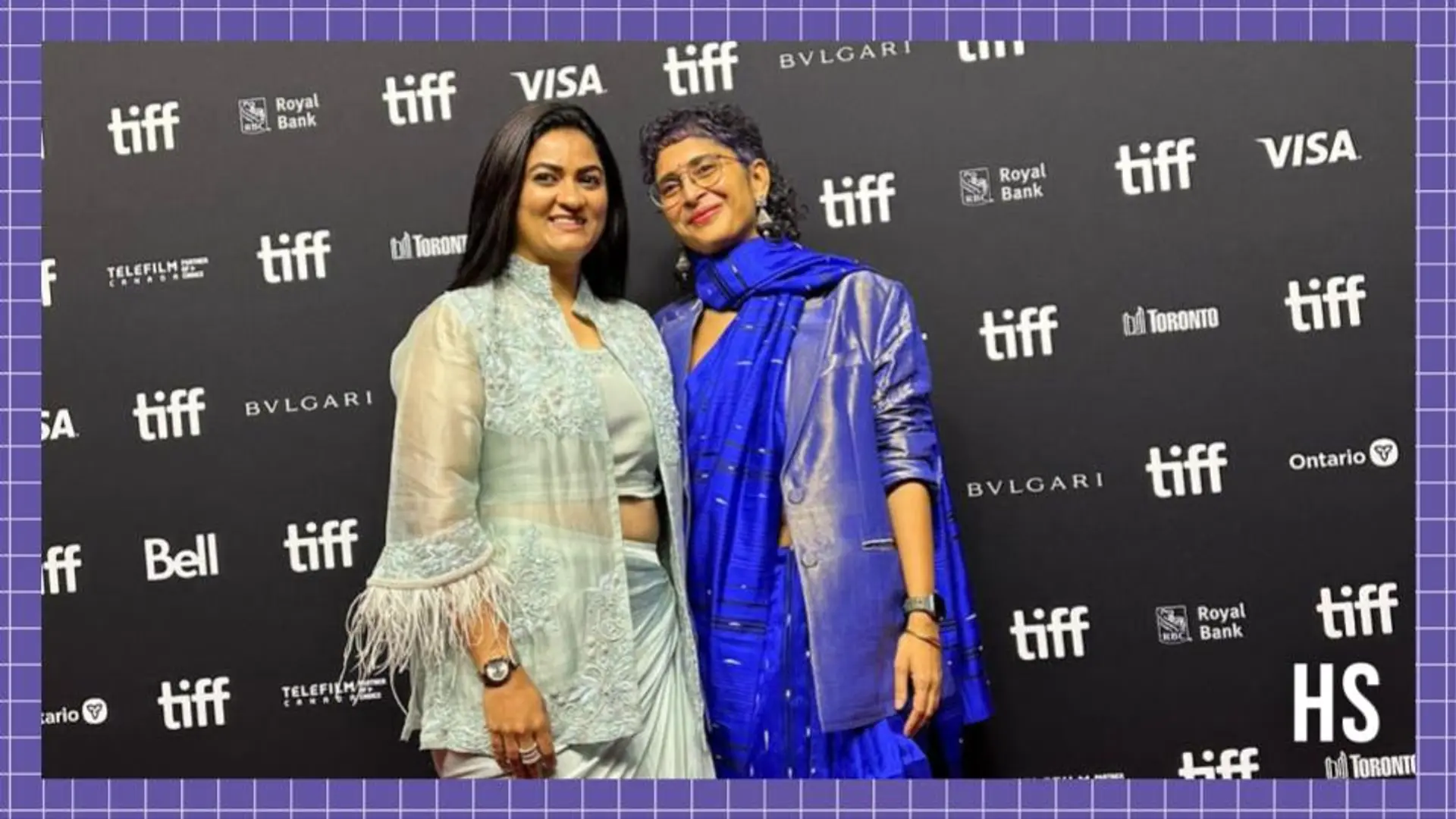From theatre to Oscars: Laapataa Ladies’ scriptwriter Sneha Desai on feminism and breaking stereotypes
Sneha Desai’s debut film, Laapataa Ladies does not aim to create revolutionaries or rebels but portrays women who raise questions from their everyday lives.
As Laapataa Ladies becomes India’s official entry for the 2025 Academy Awards in the Best International Feature Film, Sneha Desai, who has written the screenplay and dialogues, is elated.
“We had it in our bones that the script is very good. Everybody knew that we had something very nice in our hands but we had not expected it to go this big. We all are over the moon,” she tells HerStory.
The film, directed by Kiran Rao, revolves around two newlywed brides—Phool (Nitanshi Goel) and Jaya(Pratibha Ranta)—who are accidentally swapped. It became one of the most trending watches on Netflix.
As these women deal with societal expectations and patriarchy, they go on a journey of self-discovery—learning more about themselves, womanhood, and life.
The film, set in rural India, goes beyond mere entertainment and offers a strong feminist narrative, showing that change can be a whisper rather than noise.
Not all women rebel

Sneha Desai
Desai believes that while sketching women characters, one needs to stay away from stereotypes.
According to her, feminist or emancipated women don’t always have to be the ones who badmouth, smoke, or act like they don’t care about anything.
“While those characters exist, they've been overdone. To truly surprise the audience, you need to offer something unexpected. Most of India, especially in smaller towns and villages, doesn’t necessarily connect with those types of women,” she says.
Desai further reflects that the problems faced by the women in Laapataa Ladies were simple.
She says that her goal wasn’t to create revolutionaries or rebels who would disrupt a harmonious situation. Instead, she focused on portraying women who raise questions from their everyday lives and come up with simple solutions.
“Not every woman can stand up in the way we traditionally think of feminists—fighting for their rights or arguing their case. They might not be culturally, psychologically, educationally, or financially equipped to raise their voices in that way. So, the question becomes: wherever you are, how can you find happiness there? How can you improve your life in that place?” she says.
Many scenes in the film are inspired by the everyday life of women. Desai recalls a scene where Jaya and her mother-in-law talk about why she doesn’t cook her favourite vegetable.
“It's about making gradual changes to improve your life, step by step. It can be something as simple as entering the kitchen to make the dish you love,” she adds.
Decoding Laapataa Ladies
Desai recalls that she had written the film Maharaj and had gone to narrate the story to Junaid Khan (Aamir Khan’s son) for his approval.
Aamir Khan and Kiran Rao also sat for the narration. However soon after the lockdown, the film went on a pause.
During the lockdown, Desai received a call from Aamir Khan if she would be interested in developing the screenplay and writing the dialogue for a film.
Laapataa Ladies is based on a story developed by Biplab Goswami, a screenwriter and film director. The original story was serious, however, Desai chose to use humour in the narrative.
She believes that when advice is presented with humour, it becomes much easier for the audience to accept. Additionally, she wanted to maintain the film's entertainment factor.

The film is directed by Kiran Rao (Credit: Kiran Rao Instagram)
The rural landscape was specifically chosen, Desai says, because people in these areas have been conditioned for centuries and often don’t realise they can break that conditioning by taking simple steps or making minor changes in their lives.
Delving into the characters, Desai shares that the male characters in the movie are portrayed as a mix—some good, some flawed. She believes that most people are a bundle of contradictions, possessing both good and bad traits.
“While we are trying to empower women and talk about feminism, it doesn’t have to come at the cost of male bashing,” she says.
Desai explains that characters like Deepak (Sparsh Shrivastava), his father, and the inspector all have their hearts in the right place.
“Though they are rooted in patriarchy, they still want to see the women succeed, to break free from the shackles their circumstances impose. In their own way, the men are helping empower the women,” she adds.
Throwing light on the female characters, Desai shares that the character Phool is shy, demure, and not worldly-wise, while Jaya is ambitious, dynamic, and a go-getter. To balance the two and convey important lessons, Rao introduced Manju Mai (Chhaya Kadam), who had experienced life and faced bitter challenges.
Desai believes the audience can relate to these characters because their goals are realistic and achievable.
The process of scriptwriting
Desai adopts a very methodological approach to script writing.
First, she writes the first draft where she focuses on getting the story down and establishing certain characters.
Once the first draft is complete, she starts fleshing out the scenes and characters, looking for payoffs and ensuring everything is well juxtaposed.
She refines the material in the second draft for clarity and smoothness. Then, the director and producers offer their perspectives on the story and characters.
Though Desai believes that some stories demand sensitivity and empathy, which come naturally to women, she emphasises that these traits are not exclusive to any gender
“If a person is sensitive, well-read, and aware, anyone can write a script with emotional depth, regardless of their gender,” she adds.
From film debut to Oscars
Desai recalls how her journey into theatre began when a character dropped out of a college play, and she was asked to step in.
After that experience, she was hooked on acting. However, after having a baby, acting took a backseat, and she shifted her focus to writing.
From theatre, she drifted to writing for TV shows including—Pushpa Impossible and Wagle Ki Duniya.
With Laapataa Ladies, she made her debut in film screenwriting.

Laapataa Ladies has become India’s official entry for the 2025 Academy Awards in the Best International Feature Film
Talking about the differences between the two mediums, she notes that television has a sense of immediacy, as episodes need to be produced daily. In contrast, the filmmaking process is slower but demands greater quality and precision.
Desai's journey from theatre to film is a dream of many.
She acknowledges that she has been fortunate in not facing any bias in the industry, emphasising that a person's conduct and the quality of their work speak volumes about them.
However, she notes that ratios have been skewed in favour of men in the industry, but now the numbers are steadily improving.
“Women need to have a sense of purpose and translate that into action,” she adds.
With her debut movie reaching the Oscars, Desai’s journey has just begun.
“Even if I have a chance to change anything in the movie, I won’t because its flaws make it perfect,” she signs off.
Edited by Affirunisa Kankudti



